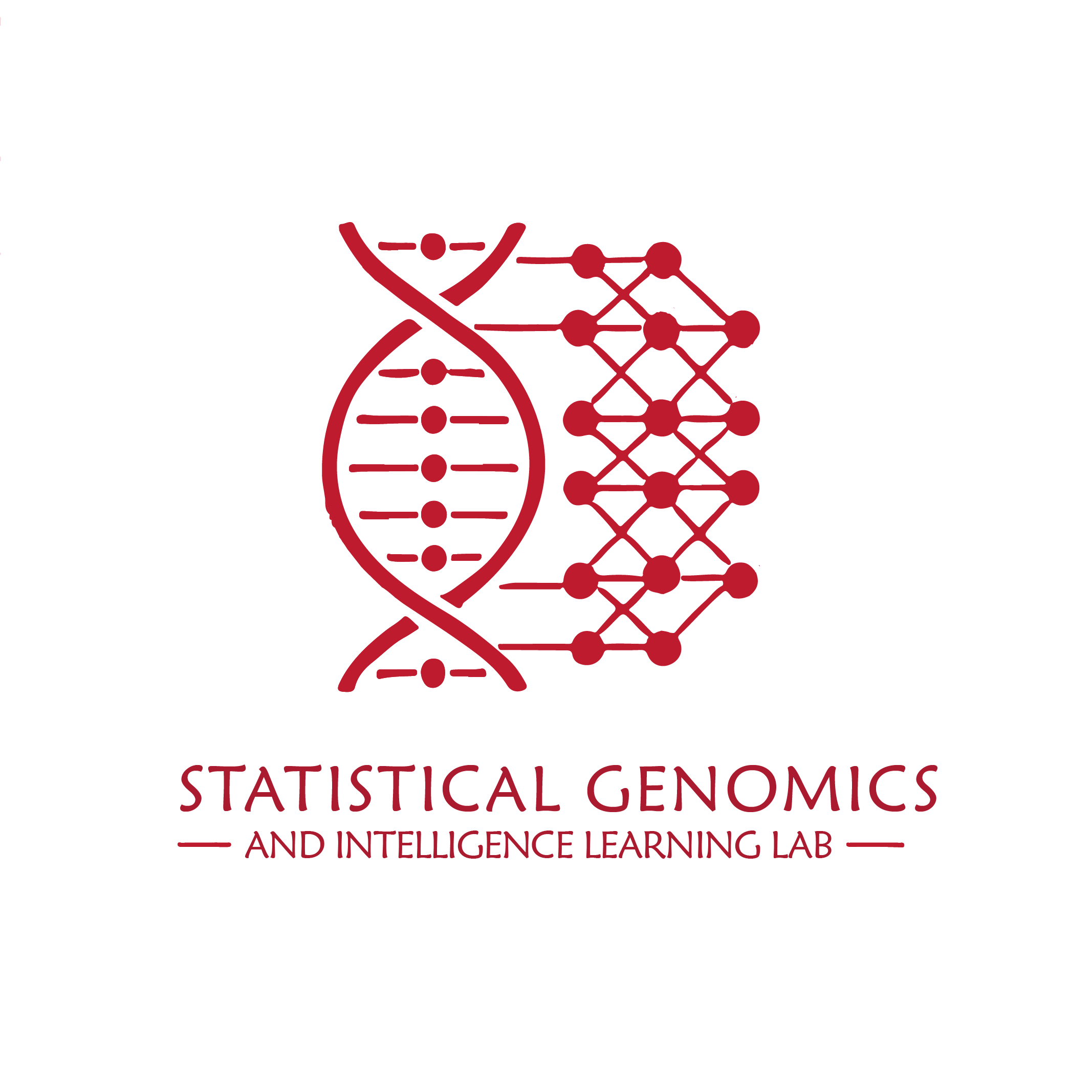 Statistical Genomics and Intelligence Learning Laboratory
Statistical Genomics and Intelligence Learning Laboratory
Research
To prospective students: I welcome applications for PhD and Postdoctoral positions related to Axis 1 and 2 of my research program. Interested candidates are encouraged to apply through the McGill Biostatistics or Quantitative Life Sciences programs. I also host undergraduate students through specialized summer research programs. These opportunities typically involve collaborative group projects, offering hands-on experience in statistical genomics and computational methods.
Axis 1: Development of Statistical and Machine Learning Methods for Spatial Omics and Single-cell RNA-seq Data
Our research in spatial omics and single-cell RNA-seq focuses on integrating advanced statistical models and machine learning techniques to uncover spatially resolved gene expression patterns and infer cellular states. We aim to enhance spatial transcriptomic analyses, enabling better disease characterization, biomarker discovery, and precision medicine applications.
- Cell Location Recovery: A deep learning approach that leverages spatial transcriptomics data to recover cell locations in single-cell RNA-seq datasets.
- Cell Type Deconvolution: An iterative method that accommodates multi-condition bulk RNA-seq data for improved biological interpretation.
- Disease-specific Gene Detection: A novel Bayesian framework for identifying disease-associated genes in high-dimensional spatial transcriptomics datasets.
Current Members

Mingchi Xu
PhD Candidate

Qicheng Zhao
PhD Candidate

Weiyi Xiao
PhD Candidate

Yuyang Zhang
Undergrad CS, Stat
Graduated Trainees

Anji Deng
MSc Non-thesis

Qicheng Zhao
MSc Thesis
Axis 2: Methodology for Error-aware Statistical Inference in Modern Settings
As model-based decision and quantification increasingly impact biomedical research, we focus on developing robust statistical methodologies to ensure reliable inference. Our work addresses measurement error, misclassification, and uncertainty in data analysis to enhance interpretability and accuracy, particlar in machine learning and artificial Intelligence.
- Measurement Error in Network Models: A generalized network model incorporating measurement error correction for high-dimensional biomedical datasets.
- Analysis of Error-prone COVID-19 Time Series Data: An autoregressive model designed to handle measurement error in epidemiological data to refine pandemic-related insights.
- Handling Misclassification in Health Data: A statistical approach for addressing misclassification errors in medical and epidemiological research.
Current Members

Mincen Liu
PhD Candidate

Jou-Chin Wu
PhD Visiting

Kent Lu
MSc Candidate
Graduated Trainees

Cathy Shen
MSc Thesis
Axis 3: Statistics in Applicational and Translational Research
Our research extends to the application of statistical methods in real-world problems, including public health policy, pandemic modeling, and social data analysis. We integrate machine learning and statistics to derive meaningful insights from diverse data sources.
- Sentiment Analysis: Examining COVID-19 tweets prior to the vaccine rollout to understand public perception and misinformation trends.
- Model-based Forecasting: Predicting Canadian COVID-19 trends using statistical forecasting models to inform public health decision-making.
- Effects of Non-Pharmaceutical Interventions: Estimating the impact of NPIs and mobility patterns on COVID-19 case trajectories in Ontario.
To prospective students interested in Axis 3: I currently only serve as a co-supervisor in Axis 3. If you are interested in working with me in this path, please identify a primary supervisor in Epidemiology or Public Health, and I would be happy to serve as a co-supervisor.
Graduated Trainees

Hani Rukh-E-Qamar
MSc Thesis

Olivia Vaikla
MSc Thesis

Fio Vialard
MSc Thesis
Interested in our research? Email Me
